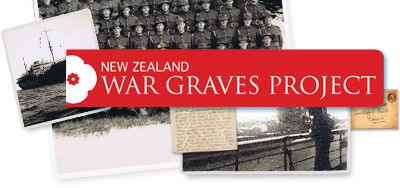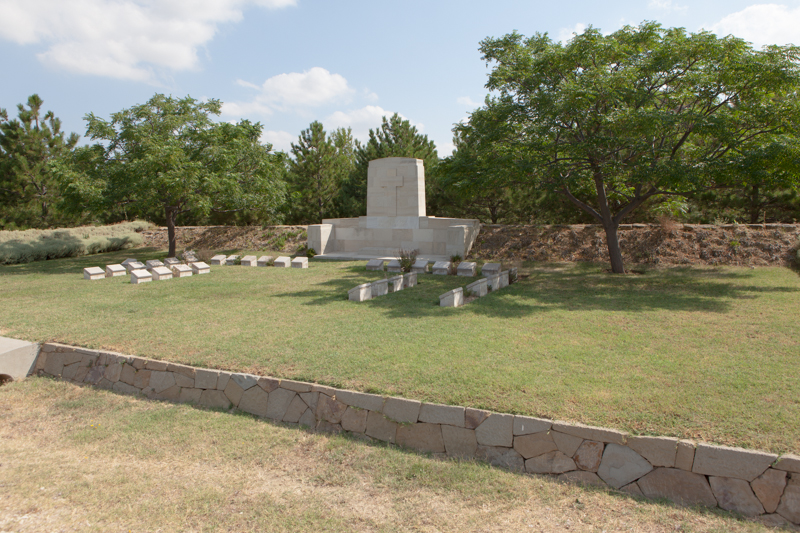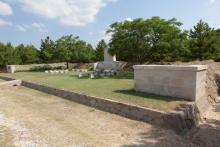The Anzac and Suvla cemeteries are first signposted from the left hand junction of the Eceabat - Bigali road. From this junction you should travel into the main Anzac area. At 12.6kms, you will encounter a track on the right leading to the cemetery. This cemetery is on the east side of the Anzac-Suvla road.
The eight month campaign in Gallipoli was fought by Commonwealth and French forces in an attempt to force Turkey out of the war, to relieve the deadlock of the Western Front in France and Belgium, and to open a supply route to Russia through the Dardanelles and the Black Sea. The Allies landed on the peninsula on 25-26 April 1915; the 29th Division at Cape Helles in the south and the Australian and New Zealand Corps north of Gaba Tepe on the west coast, an area soon known as Anzac. On 6 August, further landings were made at Suvla, just north of Anzac, and the climax of the campaign came in early August when simultaneous assaults were launched on all three fronts. No.1 and 2 Outposts were made by Nelson Company of the Canterbury Infantry Battalion on 30 April, for the burial of some of those killed when the 7th and 12th Australian Infantry Battalions landed nearby on 25 April. No.2 Post was the scene of heavy fighting at the end of May and it was one of the starting points for the Battle of Sari Bair. It contained the best well in Anzac and the 16th Casualty Clearing Station and the New Zealand Dental Corps clinic were established close by. New Zealand No.2 Outpost Cemetery was named from the burials carried out by the Nelson Company and is, in fact, one long grave made in September 1915. There are 183 Commonwealth servicemen of the First World War buried or commemorated in this cemetery. 150 of the burials are unidentified and special memorials commemorate 31 casualties known or believed to be buried among them.



Add new comment